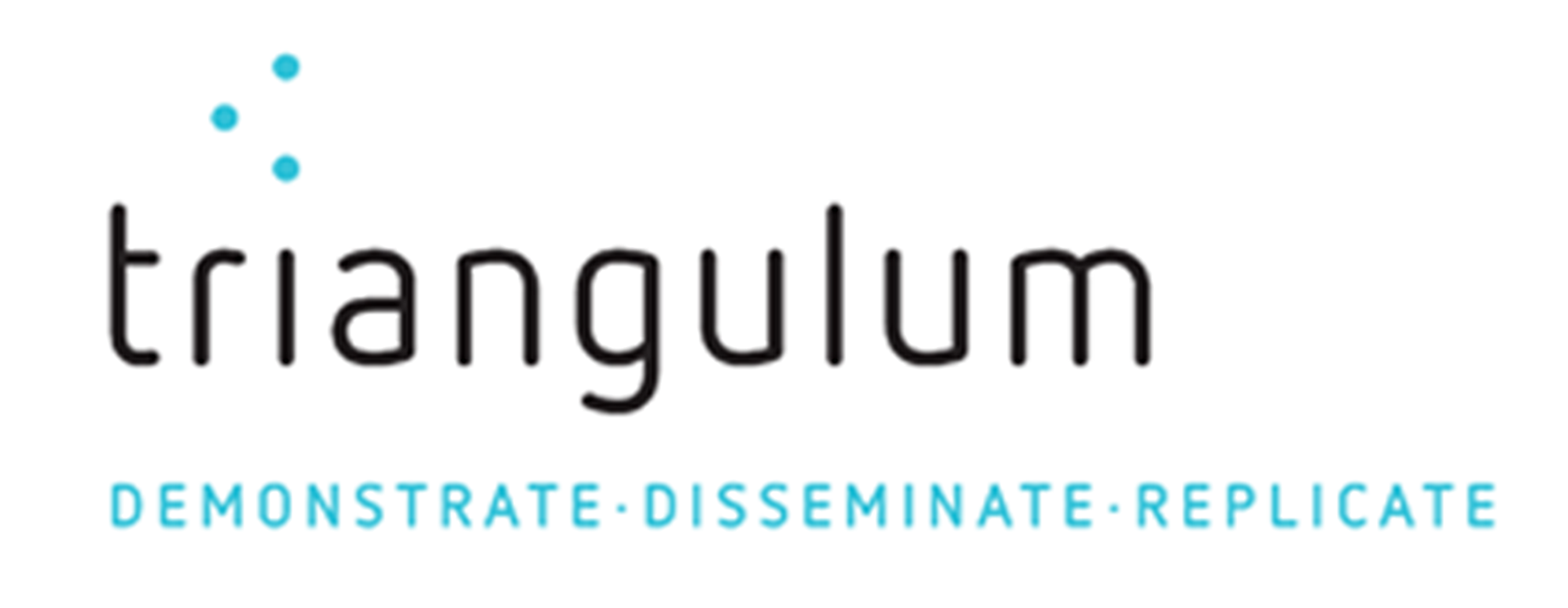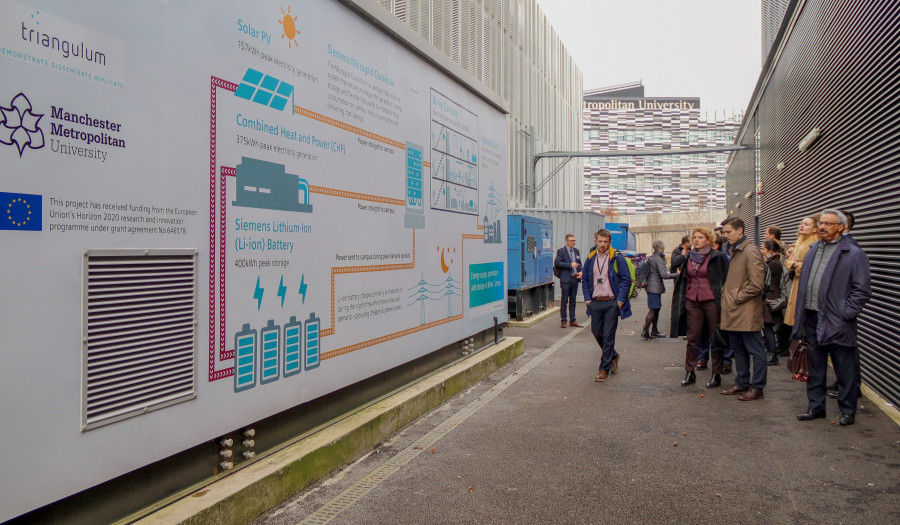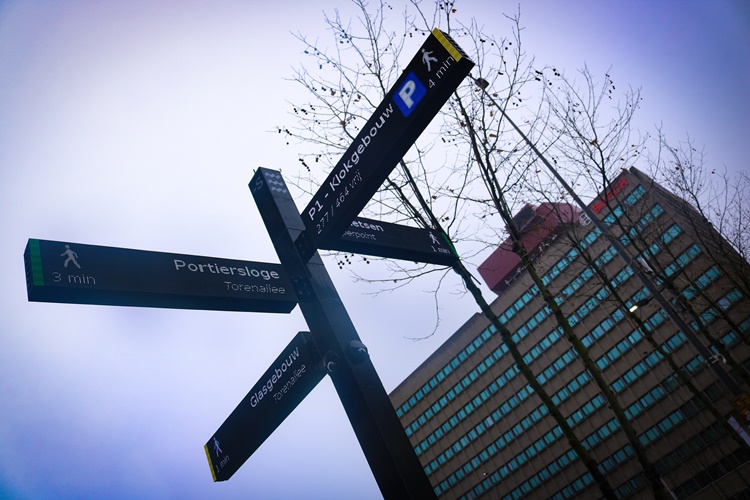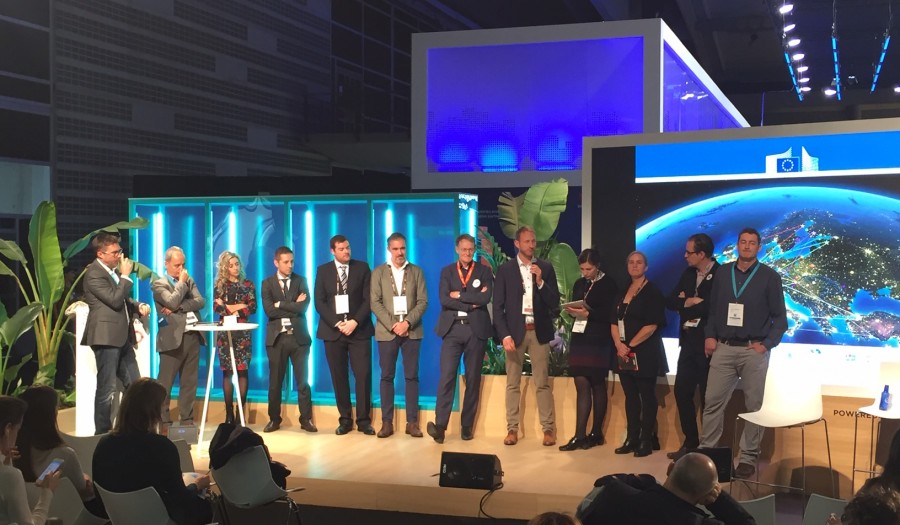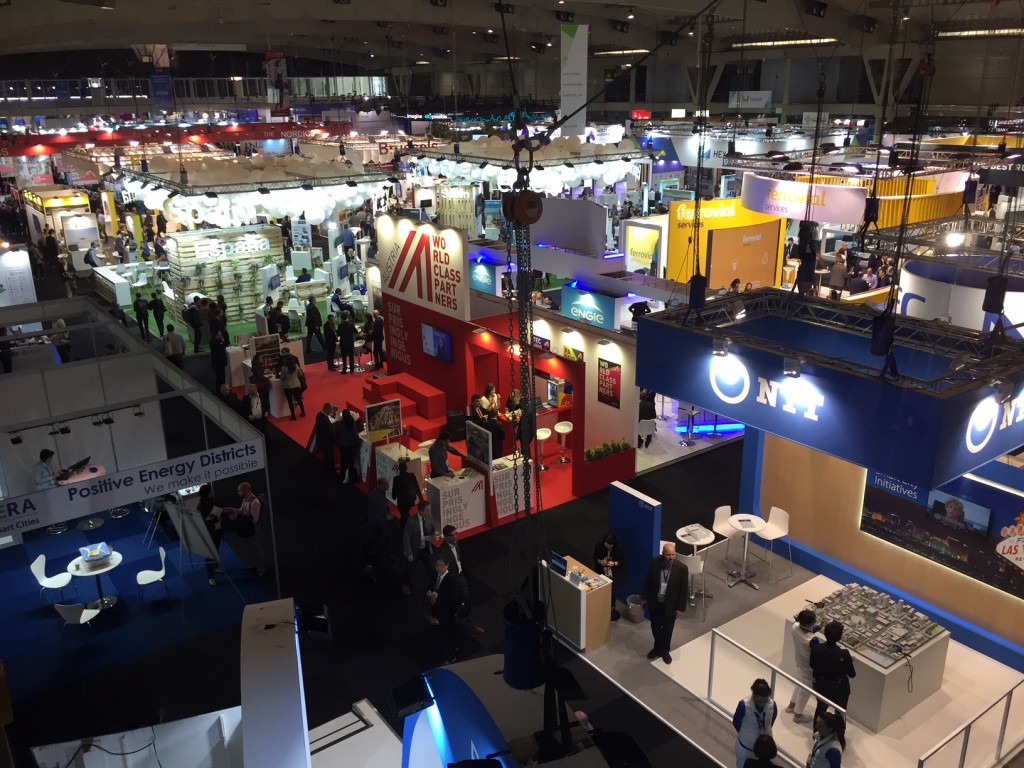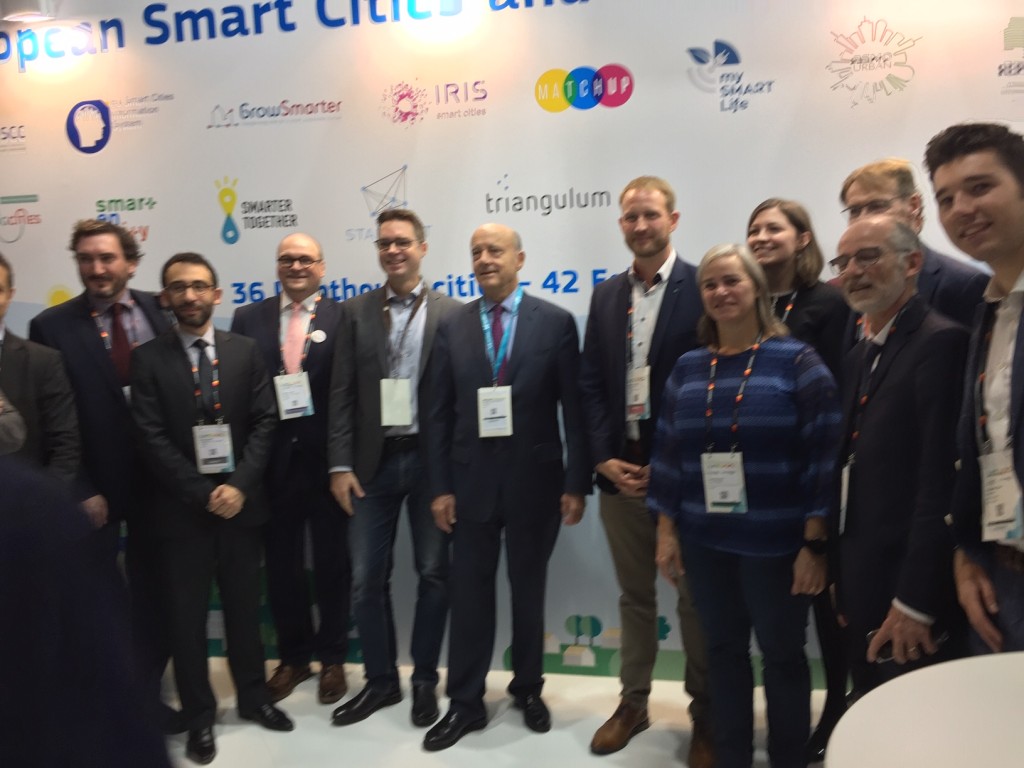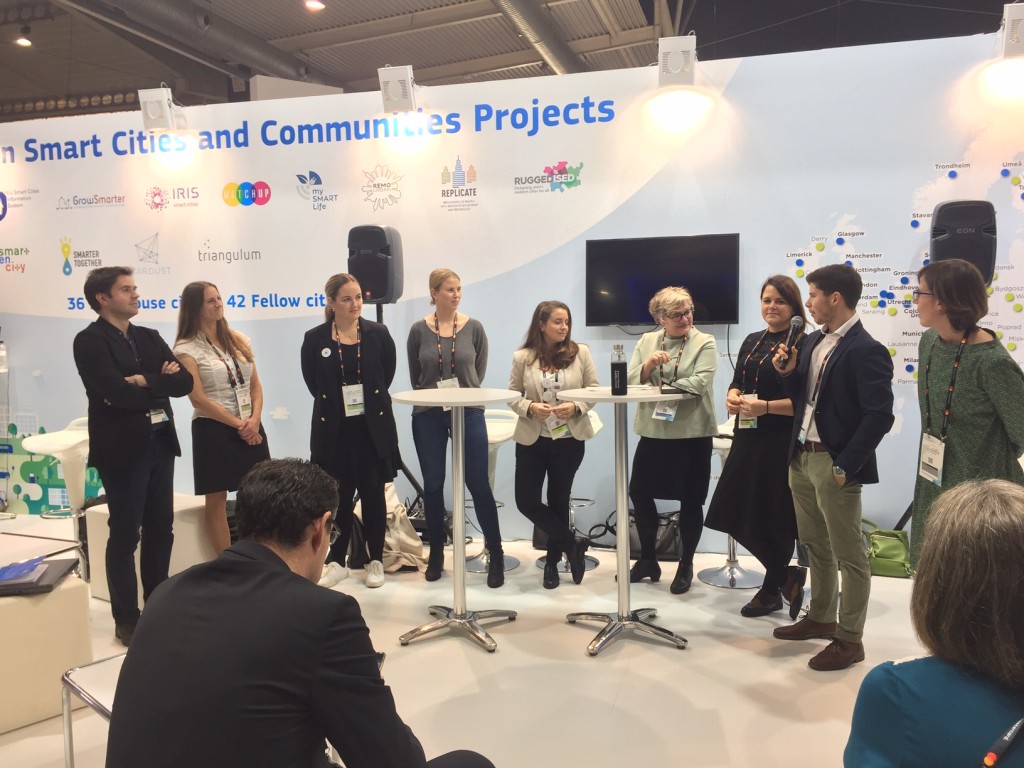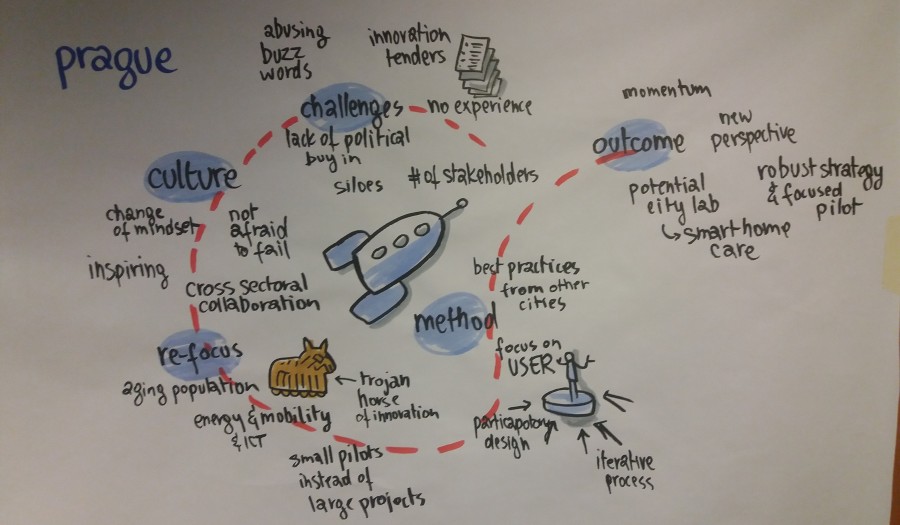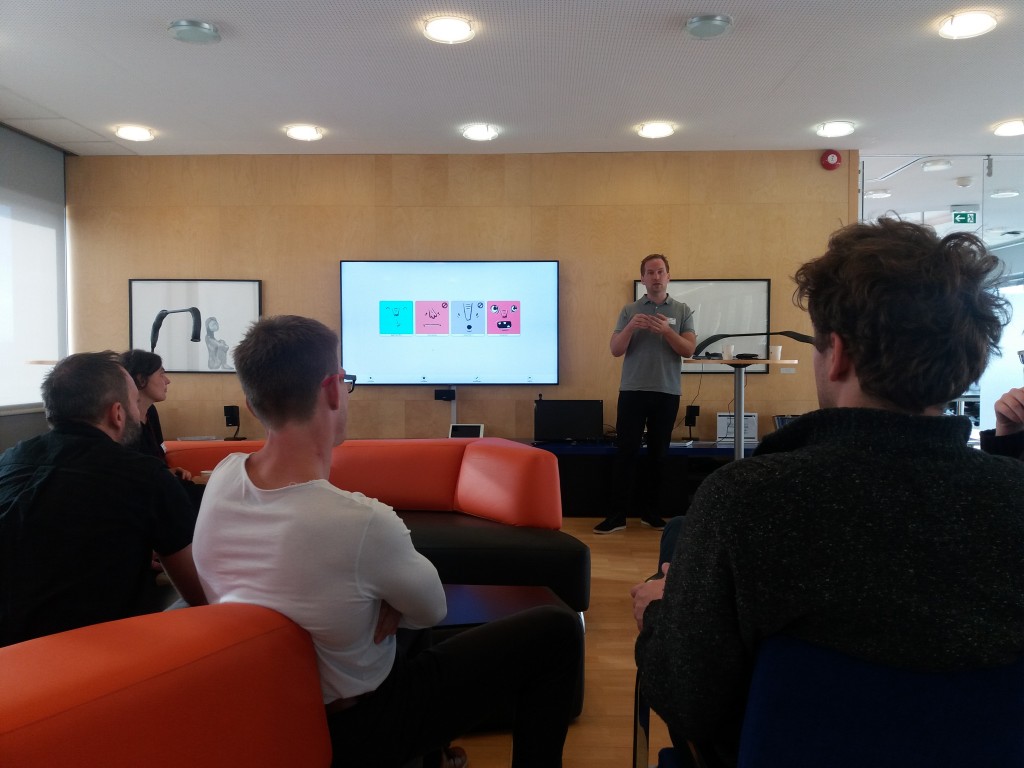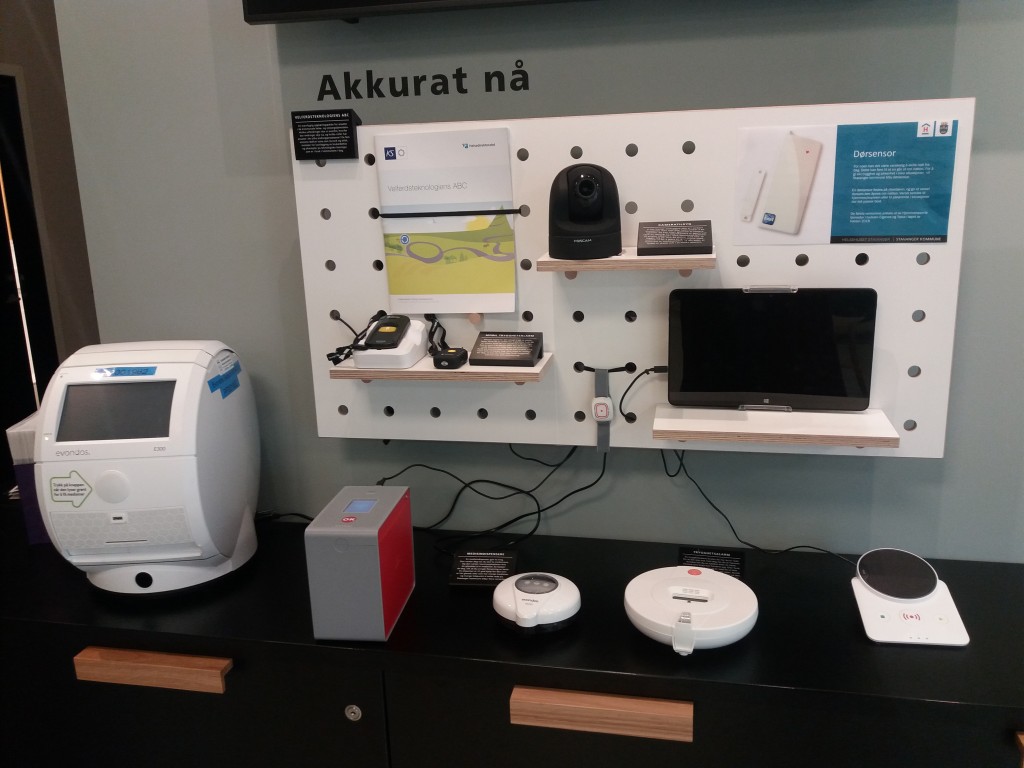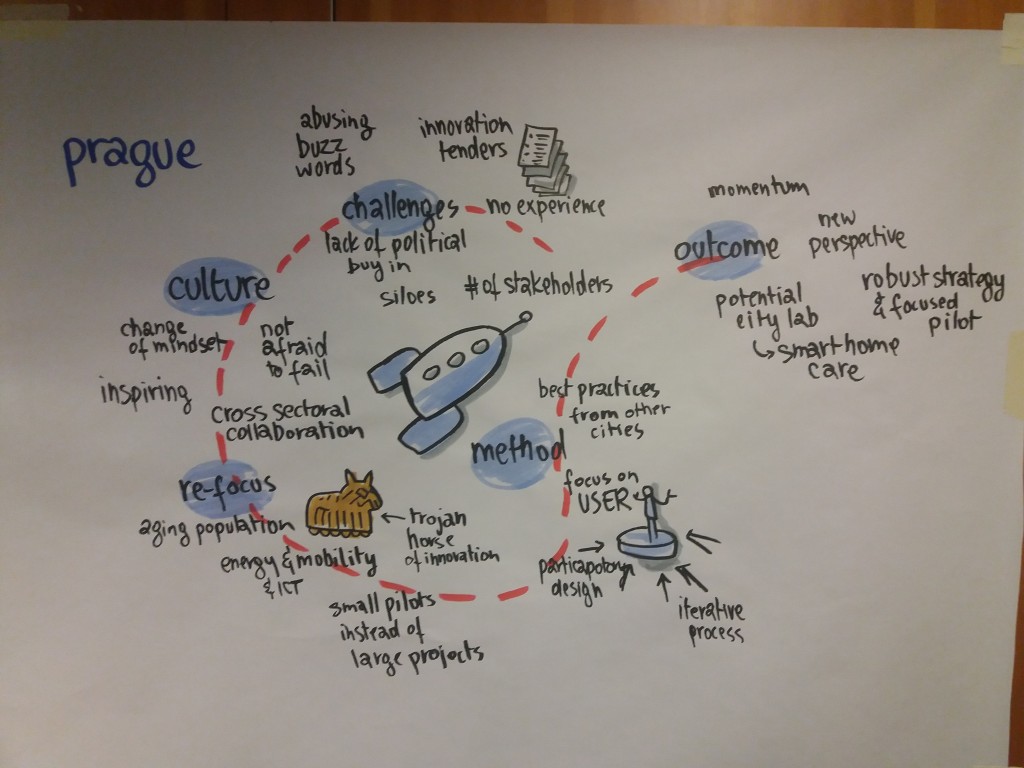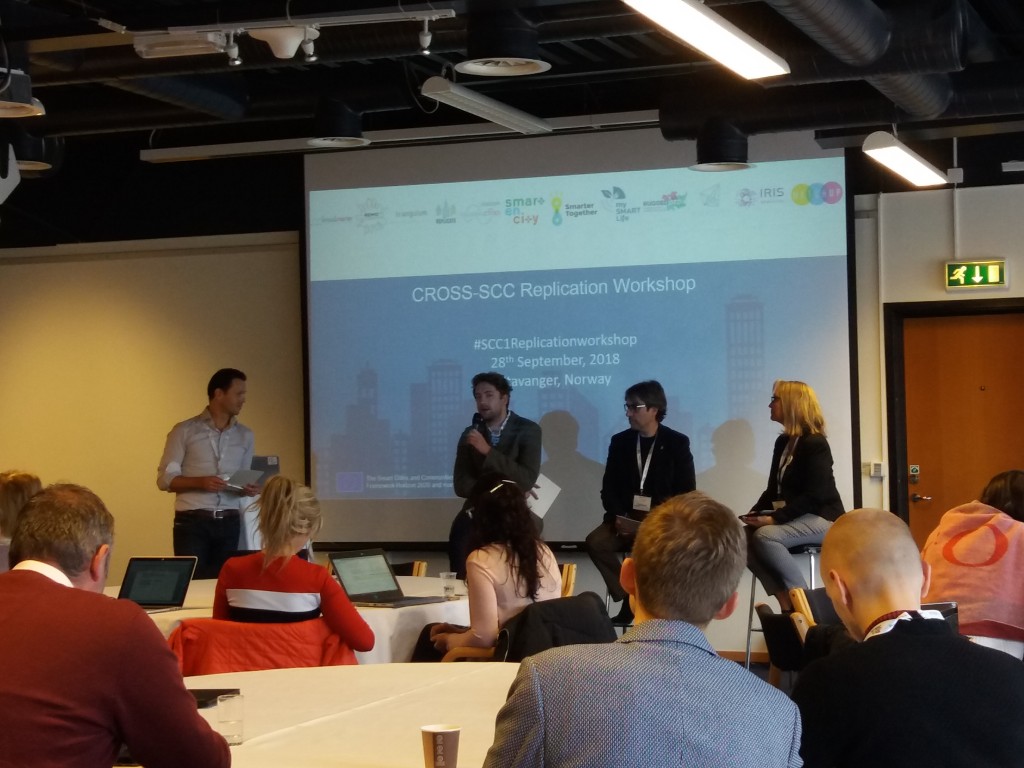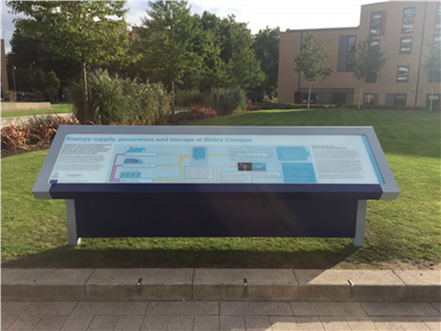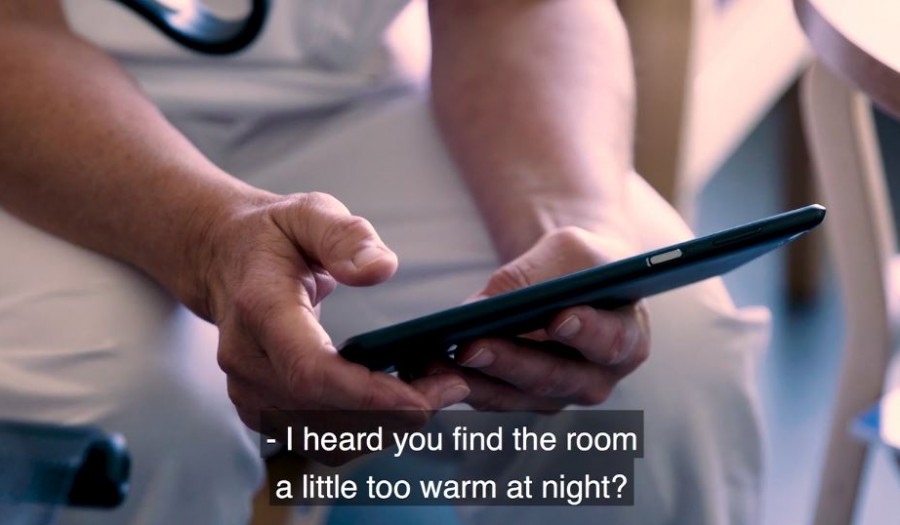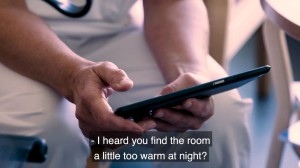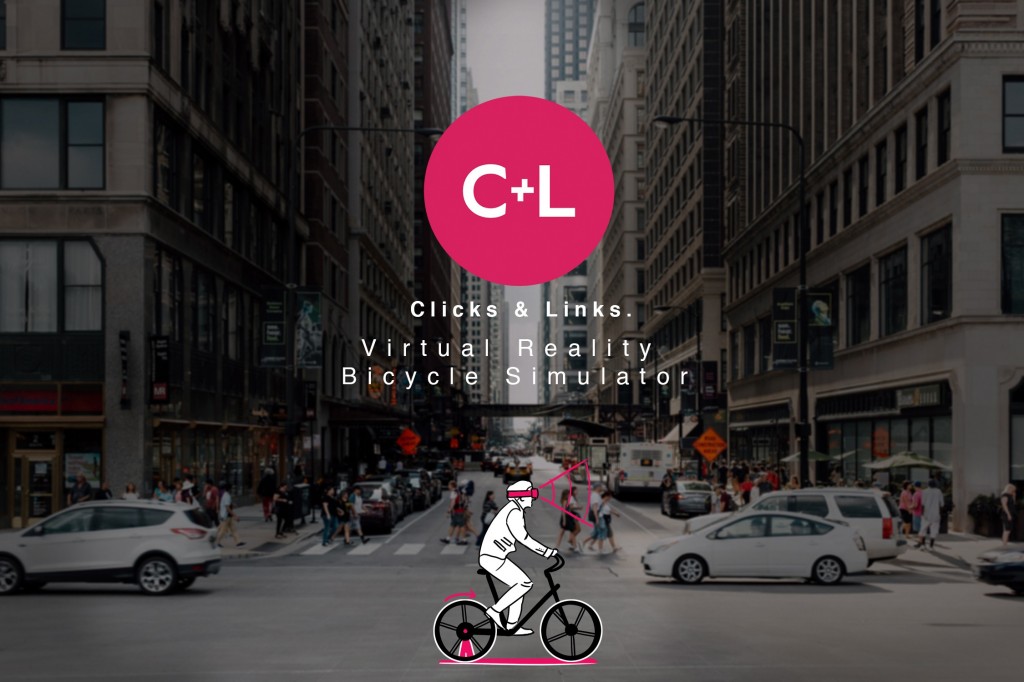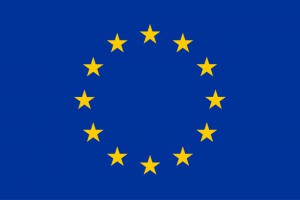The Department for International Trade Russia and representatives from Russian companies visited Manchester on the 19th February as part of the week-long business mission “Innovative Technologies in Urban Infrastructure” to the UK. The objective of the mission was to showcase UK expertise and experience in the area of sustainable construction and infrastructure proposing advanced technologies and solutions to Russian businesses and authorities.
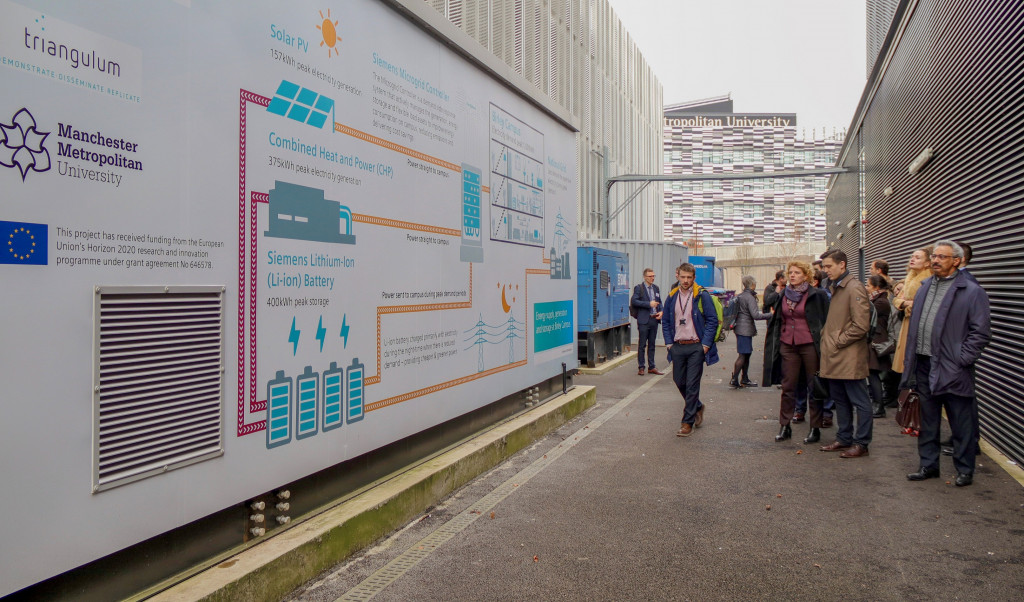
Russian Delegation visiting Manchester (Picture: Triangulum Manchester)
The visit to Manchester started with a tour of the MMU Energy Centre (demonstrating the Triangulum SolarPV and Battery installations), followed by presentations from Manchester City Council, Siemens, University of Manchester and Manchester Bike Hire on each organisation’s involvement in the Triangulum project. The visit was rounded off with a demonstration of the Triangulum Cargo Bikes. This delegation visit proofs the international interest in the achievements of Triangulum project. Just recently, Manchester Triangulum partners have also hosted delegations from South Korea and Japan.
